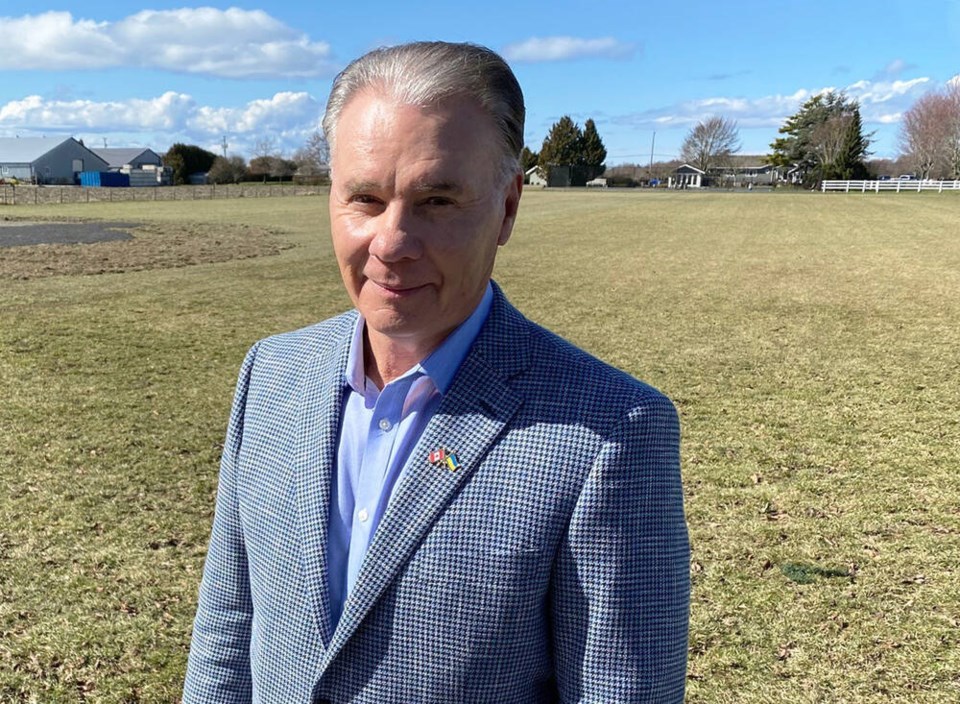The Delta farming community needs help when it comes to its irrigation water.
That’s what Mayor George Harvie conveyed during council’s recent discussion on a draft of the new Delta Agricultural Plan, noting the document made no mention of how to help solve the “critical” situation.
Saying the farming community already has problems when it comes to salinity of the water from the Fraser River due a salt wedge migration, as well as subsequent reduced flows, Harvie asked staff to look into what is needed for a second intake of water further upriver.
Having another intake source of water is something that can no longer wait, he said, adding a formal report will be written for council.
During the Agricultural and Hunting Regulation Advisory Committee’s recent discussion on the draft plan, committee members raised concerns about a lack of information around drainage, irrigation and flood control.
The committee was advised by a consultant that actions included in the plan were chosen based on what the city has the ability to implement, while the drainage and irrigation issues raised were not explicitly included in the plan as they require support and funding from bodies outside of the city.
The Delta Farmers’ Institute (DFI) has previously conveyed concerns about the salt wedge, noting Delta’s irrigation water intakes in the lower Fraser River are affected by the migration of the salt wedge up the river when river flows are reduced.
Salt wedges occur in estuaries like the Fraser River delta where ocean water meets fresh water. The term salt wedge refers to the denser ocean salt water that pushes up the estuary. Some mixing with fresh river water occurs but, in general, the denser salt water tends to remain on the bottom of the river and fresh river water flows on top of the saline water.
There’s a need for a better understanding of the salt wedge behaviour throughout the entire river channel and particularly as it relates to the deeper portions, according to a previous Delta staff report that concurred with the DFI’s concern.
“Concerns about changing salinity levels in the Fraser River are not limited to Delta alone. Many farms in Richmond also rely on the south arm of the Fraser River to provide irrigation water for agriculture. For some farmers it is their only source of water,” said DFI vice-president Clarence De Boer in a 2015 letter to the city requesting participation and funding for more study.
Delta’s farm water is pumped from the river and moved through a conveyance system of ditches, pumping stations, culverts, outfalls, and control structures.
The draft Agricultural Plan notes that reduced flow in the Fraser River in the summer months will further allow for the upstream migration of the salt wedge.
Currently, the salt wedge causes salination of the river and renders the water unusable for agricultural production at several times of the year and partial closures of water intakes for Delta’s agricultural irrigation ditch system are already in place along the river, the report notes.
“These are anticipated to increase with climate change. The DFI is involved with salinity monitoring and pump station monitoring. Furthermore, an Agricultural Water Demand Model (AWDM) developed for Delta indicates an increase in demand can be expected. Not all agricultural areas in Delta have access to surface water for irrigation at the times of year when it is needed most.” the report adds.



